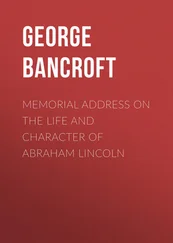George Foote - Voltaire - A Sketch of His Life and Works
Здесь есть возможность читать онлайн «George Foote - Voltaire - A Sketch of His Life and Works» — ознакомительный отрывок электронной книги совершенно бесплатно, а после прочтения отрывка купить полную версию. В некоторых случаях можно слушать аудио, скачать через торрент в формате fb2 и присутствует краткое содержание. Жанр: foreign_antique, foreign_prose, Биографии и Мемуары, на английском языке. Описание произведения, (предисловие) а так же отзывы посетителей доступны на портале библиотеки ЛибКат.
- Название:Voltaire: A Sketch of His Life and Works
- Автор:
- Жанр:
- Год:неизвестен
- ISBN:нет данных
- Рейтинг книги:5 / 5. Голосов: 1
-
Избранное:Добавить в избранное
- Отзывы:
-
Ваша оценка:
- 100
- 1
- 2
- 3
- 4
- 5
Voltaire: A Sketch of His Life and Works: краткое содержание, описание и аннотация
Предлагаем к чтению аннотацию, описание, краткое содержание или предисловие (зависит от того, что написал сам автор книги «Voltaire: A Sketch of His Life and Works»). Если вы не нашли необходимую информацию о книге — напишите в комментариях, мы постараемся отыскать её.
Voltaire: A Sketch of His Life and Works — читать онлайн ознакомительный отрывок
Ниже представлен текст книги, разбитый по страницам. Система сохранения места последней прочитанной страницы, позволяет с удобством читать онлайн бесплатно книгу «Voltaire: A Sketch of His Life and Works», без необходимости каждый раз заново искать на чём Вы остановились. Поставьте закладку, и сможете в любой момент перейти на страницу, на которой закончили чтение.
Интервал:
Закладка:
In his Essay on Epic Poetry Voltaire shows he had made a study of Milton, though his criticism can scarcely, be considered an advance upon that of Addison. He displays constant admiration for Tasso, to whom he was perhaps attracted by his sufferings at the hands of an ignoble nobility. He says:
“The taste of the English and of the French, though averse to any machinery grounded upon enchantment, must forgive, nay commend, that of Armida, since it is the source of so many beauties. Besides, she is a Mahometan, and the Christian religion allows us to believe that those infidels are under the immediate influence of the devil.” In this essay appears the first mention of the story of Newton and the apple tree.
Voltaire closely studied all branches of English literature. He read Shakespeare, and admired his “genius” while censuring his “irregularity.” He was the first to introduce him to his countrymen, though he subsequently sought to lessen what he considered their exorbitantly high opinion. The works of Dryden, Waller, Prior, Congreve, Wycherley, Vanbrugh, Rochester and Addison were all devoured, and he took an especial interest in Butler’s witty Hudibras . He was acquainted with the popular sermons of Archbishop Tillotson and the speculations of Berkeley. He had read the works of Shaftesbury, Tindal, Chubb, Garth, Mandeville and Woolston.
Voltaire became acquainted with most of the celebrities in England. He visited the witty Congreve, who begged his guest to consider him not as an author but as a gentleman. Voltaire answered with spirit: “If you had the misfortune to be merely a gentleman, I should never have come to see you.” He knew James Thomson of The Seasons , and “discovered in him a great genius and a great simplicity.” With didactic Young, of the Night Thoughts , who glorified God with his “egoism turned heavenward,” he formed a friendship which remained unbroken despite their differences of opinion on religion. He pushed among his English friends the subscription list for the Henriade , which proved a great success – although King George II. was not fond of “boetry” – reaching three editions in a short period. The money thus obtained formed the foundation of the fortune which Voltaire accumulated, not by his writings, but by his ability in finance. At that time, in France, as our author remarked, “to make the smallest fortune it was better to say four words to the mistress of a king than to write a hundred volumes.” His sojourn in England may be said to have secured him both independence of mind and independence of fortune.
What pleased him most in England was liberty of discussion. In the year in which he came over, Elwall was acquitted on a charge of blasphemy, the collected works of Toland were published, and also Collins’s Scheme of Literal Prophecy , and the First Discourse of Woolston on Miracles. The success of this last work, which boldly applied wit and ridicule to the Gospel narrative, struck him with admiration. In the very month, however, when Voltaire left England (March 1729) Woolston was tried and sentenced to a year’s imprisonment and a fine of £100. Voltaire volunteered a third of the sum, but the brave prisoner refused to give an assurance that he would not offend again, and died in prison in 1733. Voltaire always spoke of Woolston with the greatest respect.
Voltaire retained his esteem for England and the English to the last. Oliver Goldsmith relates that he was in his company one evening when one of the party undertook to revile the English language and literature. Diderot defended them, but not brilliantly. Voltaire listened awhile in silence, which was, as Goldsmith remarks, surprising, for it was one of his favorite topics. However, about midnight, “Voltaire appeared at last roused from his reverie. His whole frame seemed animated. He began his defence with the utmost elegance mixed with spirit, and now and then he let fall his finest strokes of raillery upon his antagonist; and his harangue lasted until three in the morning. I must confess that, whether from national partiality or from the elegant sensibility of his manner, I never was more charmed, nor did I ever remember so absolute a victory as he gained in this dispute.”
Voltaire corresponded with English friends to the latest period of his life. Among his correspondents were Lord and Lady Bolingbroke, Sir E. Falkener, Swift, Hume, Robertson, Horace Walpole, George Colman and Lord Chatham. We find him asking Falkener to send him the London Magazine for the past three years. To the same friend he wrote from Potsdam in 1752, hoping that his Vindication of Bolingbroke was translated, as it would annoy the priests, “whom I have hated, hate, and shall hate till doomsday.” In the next year, writing from Berlin, he says: “I hope to come over myself, in order to print my true works, and to be buried in the land of freedom. I require no subscription, I desire no benefit. If my works are neatly printed, and cheaply sold, I am satisfied.”
To Thieriot he said: “Had I not been obliged to look after my affairs in France, depend upon it I would have spent the rest of my days in London.” Long afterwards he wrote to his friend Keate: “Had I not fixed the seat of my retreat in the free corner of Geneva, I would certainly live in the free corner of England; I have been for thirty years the disciple of your ways of thinking.” At the age of seventy he translated Shakespeare’s Julius Cœsar . Mr. Collins says: “The kindness and hospitality which he received he never forgot, and he took every opportunity of repaying it. To be an Englishman was always a certain passport to his courteous consideration.” He compared the English to their own beer, “the froth atop, dregs at bottom, but the bulk excellent.” When Martin Sherlock visited him at Ferney in 1776, he found the old man, then in his eighty-third year, still full of his visit to England. His gardens were laid out in English fashion, his favorite books were the English classics, the subject to which he persistently directed conversation was the English nation.
The memory of Voltaire has been but scurvily treated in the land he loved so well. For over a century, calumny and obloquy were poured upon him. Johnson said of Rousseau: “I would sooner sign a sentence for his transportation than that of any felon who has gone from the Old Bailey these many years.” Boswell : “Sir, do you think him as bad a man as Voltaire?” Johnson : “Why, sir, it is difficult to settle the proportion of iniquity between them.” And this represents an opinion which long endured among the religious classes. But it is at length being recognised that, with all his imperfections, which were after all those of the age in which he lived, he devoted his brilliant genius to the cause of truth and the progress of humanity. He made his exile in England an occasion for accumulating those stores of intelligence with which he so successfully combated the prejudices of the past and promulgated the principles of freedom, and justified his being ranked foremost among the liberators of the human mind.
EXAMPLES FROM ENGLAND
Several incidents combined to direct Voltaire’s attention to clericalism as the enemy of progress and humanity. Soon after his return to France, the famous actress, Adrienne Lecouvreur, for whom he had a high esteem, and who had represented the heroines of his plays, died. The clergy of Paris refused her Christian burial because of her profession, and her corpse was put in a ditch in a cattle-field on the banks of the Seine. Voltaire, who regarded the theatre as one of the most potent instruments of culture and civilisation, at once avenged and consecrated her memory in a fine ode, burning with the fire of a deep pathos, in which he takes occasion to contrast the treatment in England of Mrs. Oldfield, the actress, who was buried in Westminster Abbey. Mr. Lecky says: “The man who did more than any other to remove the stigma that rested upon actors was unquestionably Voltaire. There is, indeed, something singularly noble in the untiring zeal with which he directs poetry and eloquence, the keenest wit, and the closest reasoning to the defence of those who had so long been friendless and despised.”
Читать дальшеИнтервал:
Закладка:
Похожие книги на «Voltaire: A Sketch of His Life and Works»
Представляем Вашему вниманию похожие книги на «Voltaire: A Sketch of His Life and Works» списком для выбора. Мы отобрали схожую по названию и смыслу литературу в надежде предоставить читателям больше вариантов отыскать новые, интересные, ещё непрочитанные произведения.
Обсуждение, отзывы о книге «Voltaire: A Sketch of His Life and Works» и просто собственные мнения читателей. Оставьте ваши комментарии, напишите, что Вы думаете о произведении, его смысле или главных героях. Укажите что конкретно понравилось, а что нет, и почему Вы так считаете.






![William Frith - John Leech, His Life and Work. Vol. 1 [of 2]](/books/747171/william-frith-john-leech-his-life-and-work-vol-thumb.webp)
![William Frith - John Leech, His Life and Work, Vol. 2 [of 2]](/books/748201/william-frith-john-leech-his-life-and-work-vol-thumb.webp)



